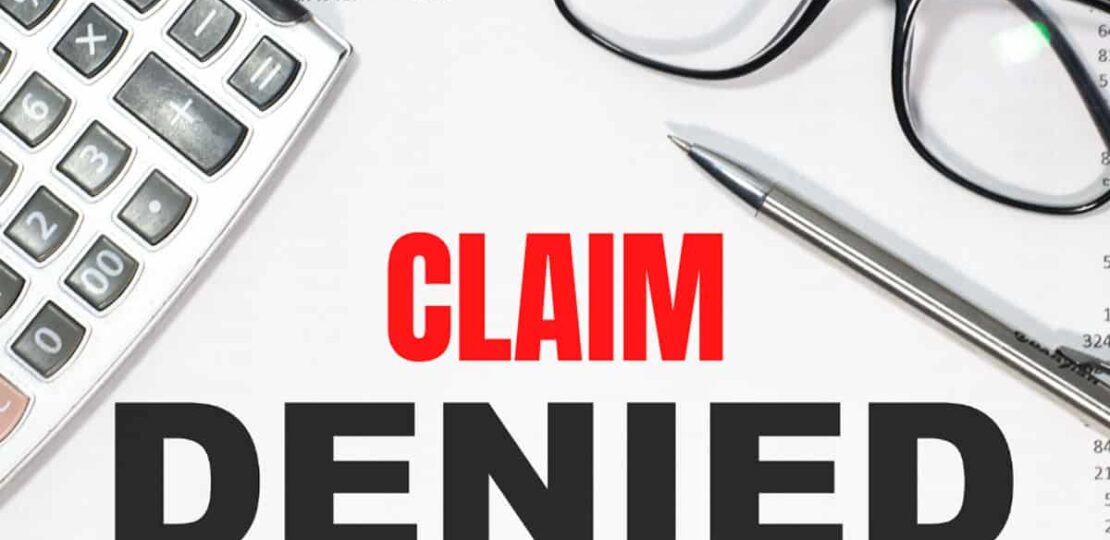5 Ways to Reduce Claim Denials and Increase Reimbursements
October 27, 2025 | by IoT Development Company

Claim denials are the worst nightmares for healthcare practices because they impact their financial sustainability and disrupt overall clinical operations. Sometimes insurance companies and payers refuse to pay for the practices’ services. According to a report, one out of every five claims is denied each year, resulting in thousands of dollars in lost revenue for medical practices. Moreover, 60% of medical billing claim denials are never resubmitted, which is even more concerning for medical practices.
Impacts of the claim denials on practice revenue
Frequent claim denials lead to substantial financial losses and reputational damage to medical practices. Each unpaid claim represents the disappearance of revenue from delivered services, threatening the practices’ financial stability over time.
Moreover, 18%-20% medical claims are initially denied, making it harder for practices to manage operational expenses. Unresolved denials alone cause 3-5% of total revenue loss. It directly affects the organization’s ability to cover routine expenses, such as:
- Paying staff members on time.
- Covering utilities.
- Technology upgrades.
- Investing in staff training.
- Ensuring patient care with cash flow gaps.
Healthcare claim denials also significantly increase the administrative burden on healthcare staff. The complexity of healthcare billing requires extra documentation. The healthcare staff must also spend additional time learning new billing rules, correcting errors, and resubmitting claims. Reworking each denied claim costs healthcare practices $25 to $118. Moreover, excessive workloads lead to staff burnout, which directly affects the quality of patient care.
The difference between claim denial and claim rejection
Knowing the difference between claim denial and claim rejection is important because each requires a different approach to fix. Let us understand the difference between claim denial and claim rejection.
Claim denials
When an insurance company or payer reviews a claim but denies payment, it is called claim denial. Issues such as missing referrals, credentialing problems, non-covered services, or a lack of medical necessity contribute to this problem. To fix this, practices must follow up in time and request reconsideration. If precautions are not taken on time, the money for that service may be lost forever.
Claim rejections
Calim rejections occur when insurance companies or payers process claims but flag them due to some errors. For example, missing information, using outdated codes, or adding the wrong policy number could lead to claim rejections. Moreover, rejections are less severe than denials, and after correction, the resubmission process is simpler. But it consumes extra time and effort of healthcare staff.
Although they differ, both denials and rejections create problems for providers. In both cases, the result is the same: payment is delayed or lost, and the provider must take action to correct the issue. This is why understanding and managing claim denials in medical billing is so important.
Common reasons for claim denials
Most healthcare claim denials result from administrative and coding errors. However, understanding the reasons can help practices prevent claim denials by up to 90%. Here are some of the common reasons:
- Administrative and eligibility errors, such as errors in registration forms, failure to obtain prior authorization, and duplicate claim submission.
- Eligibility errors, such as inactive or expired insurance coverage.
- Not adhering to the timelines set by insurance companies.
- Listing the wrong location of service.
- Ambiguity in the patient’s insurance plan.
- Missing credentialing information, such as providers’ licenses, certifications, or enrollment forms.
- Incorrect or outdated coding.
- Mismatched coding.
- Unspecified or vague codes can lead to claim denials.
- Missing or misused modifiers.
- Insufficient documentation.
- Lack of medical necessity.
- Payer policy changes
How does effective denial management reduce claim denials?
Effective denial management helps medical practices reduce claim denials by implementing proactive and strategic measures. Focusing on preventing errors with proper checking and fixing them before claim submission. Moreover, carefully reviewing codes, fixing eligibility, and completing all documents are the key steps in smart denial handling.
Practices can also prevent future denials by addressing recurring problems, updating coding practices, and tracking patterns. Besides, the use of advanced technology and automation significantly reduces claim denials. It plays a significant role in accurate charge capturing and promotes smoother workflows.
Let us explore some innovative and advanced ways to reduce claim denials. The following steps focus on simple and practical steps, but create a significant difference. With these techniques, practices can avoid common errors and increase the chances of claim approvals. Moreover, they receive faster and proper reimbursements, save time, and optimize their revenue streams.
5 proven ways to reduce claim denials
Medical practices can receive complete reimbursement without affecting the quality of care they provide. Receiving payment for their services becomes simpler with the right approach. Here are a few smart adjustments practices must adopt in their billing processes to avoid costly rejections.
Implementing the following strategies can significantly reduce claim denials, accelerate reimbursements, and ensure the financial stability of the practice.
1. Check prior authorization and patient eligibility upfront
The reimbursement process is linked with the initial step, when a patient visits a practice and submits details. Medical practices must verify some essential information, such as the patient’s insurance coverage, effective dates, and deductible amounts. Collecting copayments and coinsurance percentages at the time of appointment scheduling to ensure accurate billing and smooth reimbursements. It also saves patients from surprise bills, enhances patient trust, and increases practice revenue.
According to a report, up to 18% of claim denials occur because of missing prior authorization or referrals. Checking and obtaining approval during scheduling prevents unnecessary denials and delays.
2. Maintain accurate and current coding with proper documentation
Insurance companies request medical documents for record-keeping, proof, and to verify medical necessity. Claims without proper documentation have a higher chance of rejection. Such a necessity highlights the importance of accurate coding and clear documentation for faster reimbursements. Even minor mistakes can lead to claim denials or delay the reimbursement process. Medical practices must adopt the following documentation and coding practices to prevent denials.
- Follow official coding guidelines to stay updated and ensure accurate, compliant coding for all claims.
- Ensure that clinical notes clearly describe the necessity of treatment.
- Avoid vague terms like “pain” or “follow-up” in clinical documents. Use specific descriptions such as “bilateral lumbar radiculopathy” or “suture removal”. Precise documentation that accurately matches service codes is more likely to be reimbursed.
- Mention the start and end times of service delivered in your documentation to ensure accurate billing.
Focusing on accurate coding, proving medical necessity, and providing complete details reduces claim denials in medical billing.
3. Leverage advanced technology for error detection
Leveraging advanced technology like Artificial Intelligence (AI), Robotic Process Automation (RPA), and Electronic Health Record (EHR) integration is the most effective way to reduce claim denials. Identifying billing errors becomes significantly simpler, which in turn improves reimbursements. Moreover, the claim scrubbing software automatically highlights the mistakes, such as wrong codes, missing modifiers, or incorrect service location. It allows the billing team to catch and fix errors in time before claim submission. Medical practices can also customize scrubbers as per specific insurance policy rules. Such practices speed up billing processes and reduce claim denials up to 70%.
Moreover, the advanced EHR systems suggest correct codes while analyzing clinical documentation. Similarly, predictive analytics helps identify denial patterns and trends and flags high-risk claims. It helps medical practices to fix errors in a timely manner and prevent future denials.
4. Develop a structured denial management process
Practices must find reasons behind claim denials instead of just fixing errors and resubmitting rejected claims. Forming a structured approach to the denial management process enables them to identify frequently occurring errors. So, they can make fixes from the root. At the same time, they must track performances like denial rates and outstanding balances. Reviewing these performance metrics allows practices to improve processes. Moreover, they must develop a billing system that follows a structured workflow. It must include step-by-step processes such as reviewing documentation, scrubbing for errors, correcting codes, and preparing claims. Claim submission within 48 hours of service completion ensures faster processing and reduces the risk of denials.
5. Outsource denial claim management to billing professionals
Outsourcing denial claim management is one of the smartest decisions medical practices can make. Contracting with billing professionals is equally beneficial for small, medium, and large medical groups. Especially for small medical groups, outsourcing is a valuable opportunity to reduce claim denials and maximize reimbursements. Claim denials in small practices often occur because they have limited staff and outdated billing systems. Moreover, they also struggle to keep up with complex payer-specific regulations.
By outsourcing, they gain access to expert billers and coders who quickly identify and resolve coding errors. Their services ensure quick reimbursements without delays. Moreover, they also utilize advanced technology to maintain compliance and efficiently manage claim denials.
Handing over billing responsibilities to experts enables healthcare providers to focus more on patient care. It saves them from compiling a pile of claims to submit while adhering to complex billing rules.
Conclusion
Claim denials often increase because practices often have untrained billing staff and lack access to advanced technology. Neglecting these reasons can give significant financial and reputational damage to healthcare organizations. To maximize reimbursements and reduce claim denials, practices must ensure proper documentation, leverage technology, and have a clear understanding of payers’ rules. Outsourcing medical billing Services helps practices save time, cut costs, and focus more on patient care instead of paperwork. It is a great opportunity for practices to turn revenue blockages into steady growing revenue streams with smoother cash flow.
PRG is committed to delivering while helping you to save operational costs. We help medical practices achieve sustainable financial growth.
RELATED POSTS
View all



